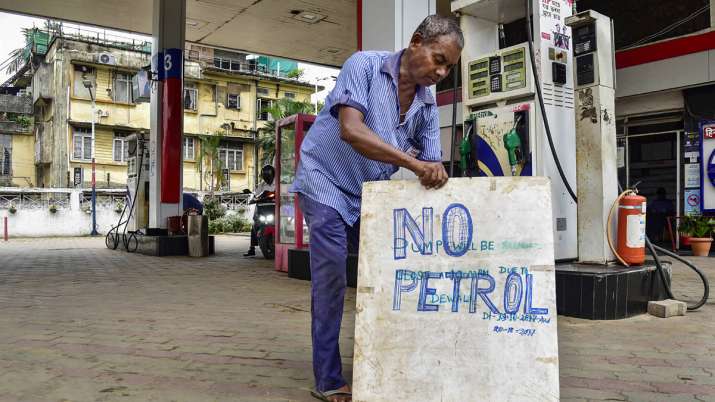This month, gasoline scarcity worries and panic purchasing among customers were sparked by various cities throughout the nation witnessing petrol outlets restricting supply or closing owing to non-availability of fuel.

Around the middle of June, the situation reached a crisis point, prompting the government to step in and order gas stations to remain open as well as oil marketing corporations to guarantee fuel supplies. There is adequate gasoline in the nation, according to a statement from the Ministry of Petroleum and Natural Gas. Since then, things have improved, and by July, gasoline supplies should be back to normal.
Oil marketing firms including the state-owned HPCL and BPCL as well as the private firms Nayara Energy and Reliance began to declare losses on retail sales as crude prices rose internationally and the value of the rupee declined concurrently. However, because IOCL was able to buy less expensive oil from Russia, the situation there was noticeably improved.
Downstream oil corporations attempted to cut back on supplies to gas station sellers as losses started to rise. As a result, there was a scarcity of fuel at several gas stations around the nation.
However, IOCL was able to keep up its supply, which contributed to them further growing their market share.
In response, the government urged gas stations to remain open and continue supplying customers with fuel. The administration recognised the issue in a statement on June 15 and said that Rajasthan, Madhya Pradesh, and Karnataka had experienced gasoline shortages. It attributed the shortage to an increase in demand, which during the first half of June 2022 increased by as much as 50% compared to the same period the previous year.
The government also noted that these were states where terminals and depots were farther away and where significant amounts of petroleum were supplied through retail sites run by private marketing firms. The nation’s output of gasoline and diesel, according to the administration, is more than enough to meet any spikes in demand.
In order to prevent oil corporations from going bankrupt, the issue can be solved by boosting retail gasoline and diesel prices, however this may take some time. High gasoline costs might have a domino effect on the government’s efforts to curb inflation, which is something it should do.
However, oil firms have increased the price of jet fuel and the rates for bulk buyers, which might not be enough to make up all of their losses.
According to specialists in the field, using the Universal Service Obligation (USO) may not be able to completely solve the issue. Simply mentioning the USO will not enhance product availability at retail establishments since private businesses have raised prices at their locations following the USO. Since in the past, supplies without prior payments were not provided, resulting in a dry-out scenario throughout states, it would be fascinating to observe how BPCL/HPCL proceed during weekly vacations, a dealer stated.
The monsoon will lessen the need for gasoline in industries like agriculture, so the situation should start to improve next month.
In the meantime, starting on June 10 BPCL shut down half of its 240,000 barrels per day (bpd) of crude processing capacity at a refinery in Mumbai to perform maintenance. However, as these maintenance runs are planned and any deficit is made up for by other oil refineries, this is unlikely to have a significant influence on the availability of fuel.
There were no answers to emails addressed to the petroleum ministry, IOCL, HPCL, or BPCL.
